Article not found
This article is no longer available. But don't worry—we've gathered other articles that discuss the same topic.
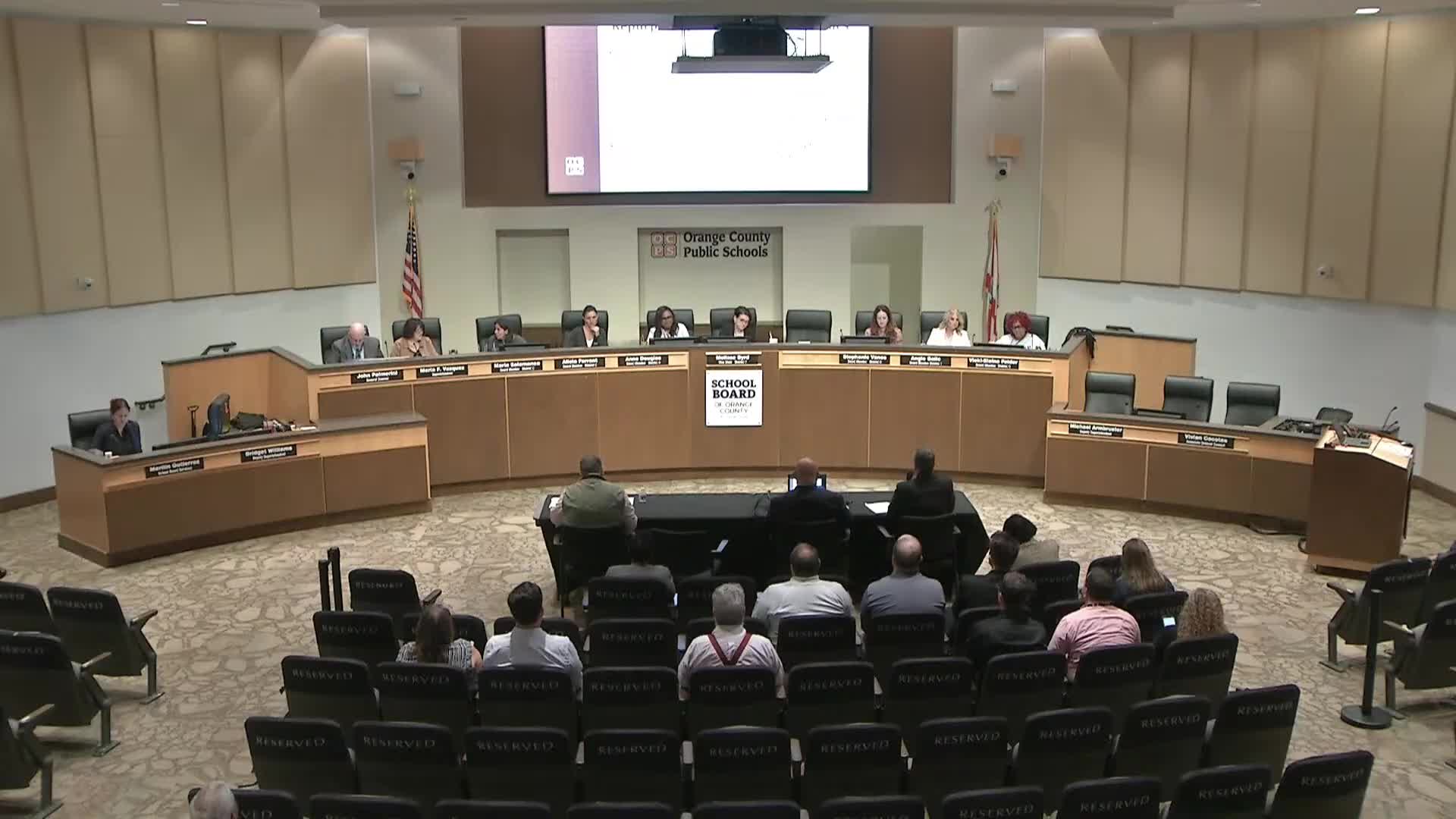
OCPS proposes consolidating ancillary facilities at John T. Morris complex to reduce footprint and costs
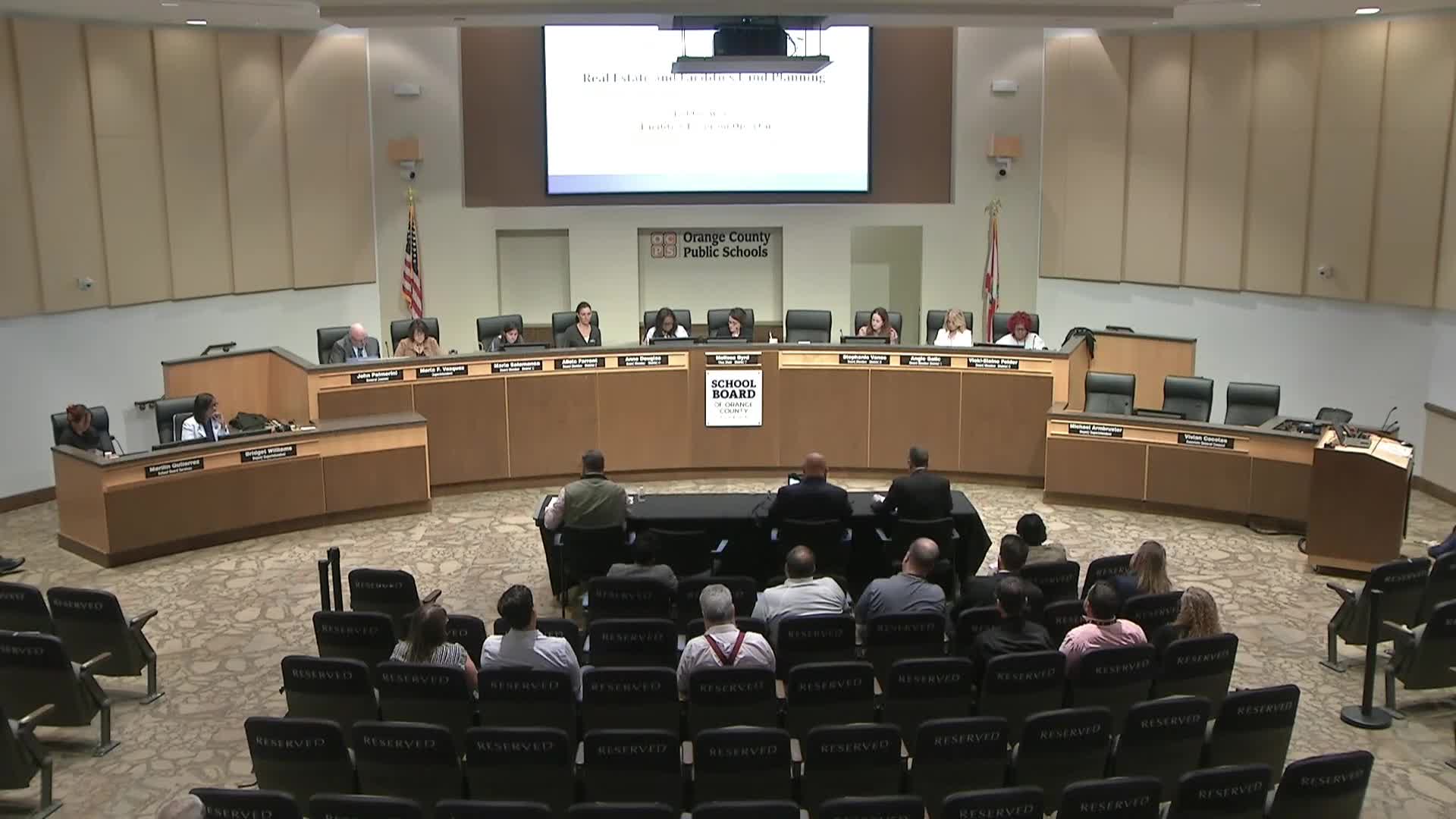
Vision 2050 and impact-fee review could change how OCPS mitigates new development
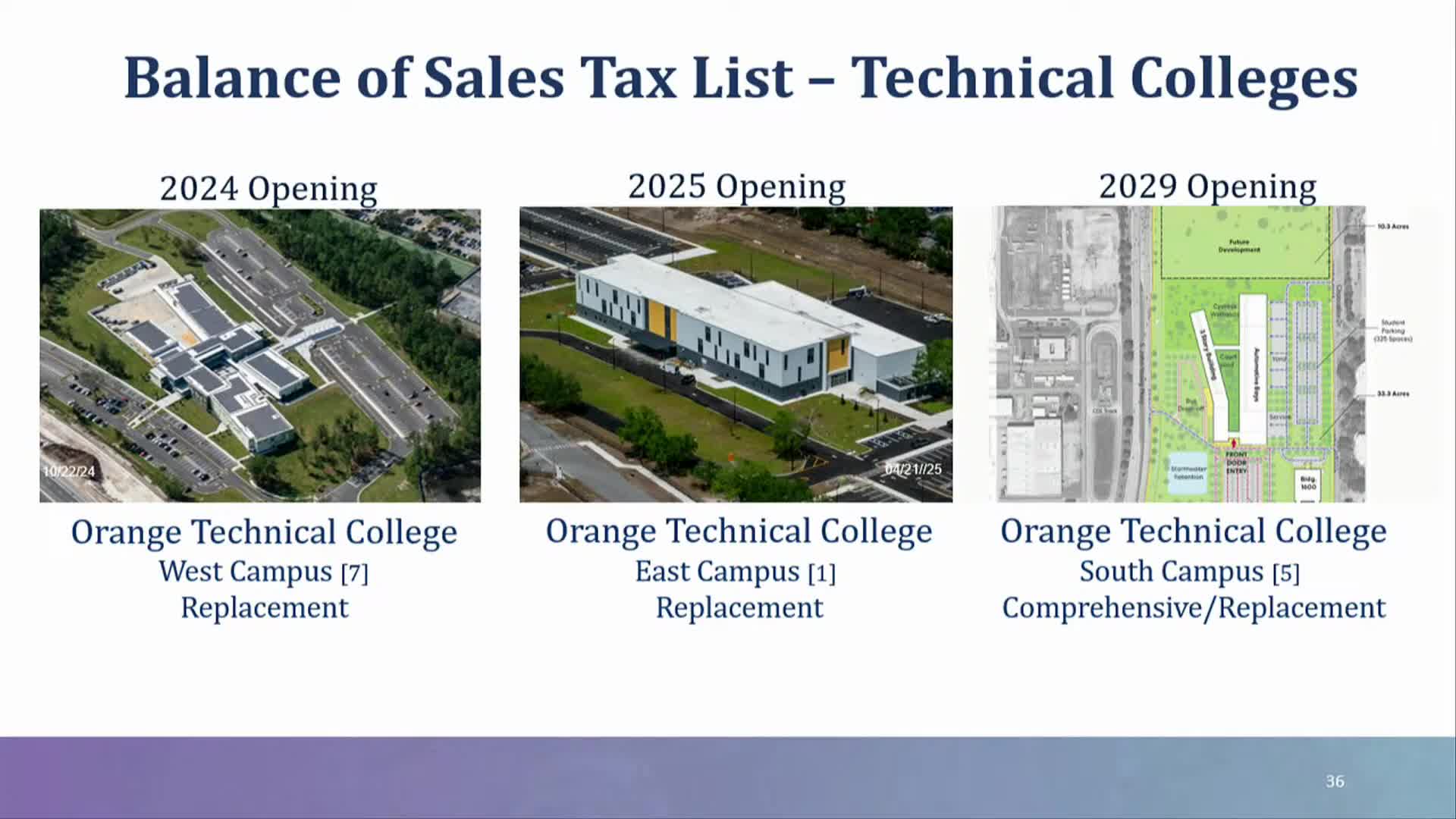
OCPS pilot solar project at OTC West and energy programs show early reductions in use, but ROI remains long
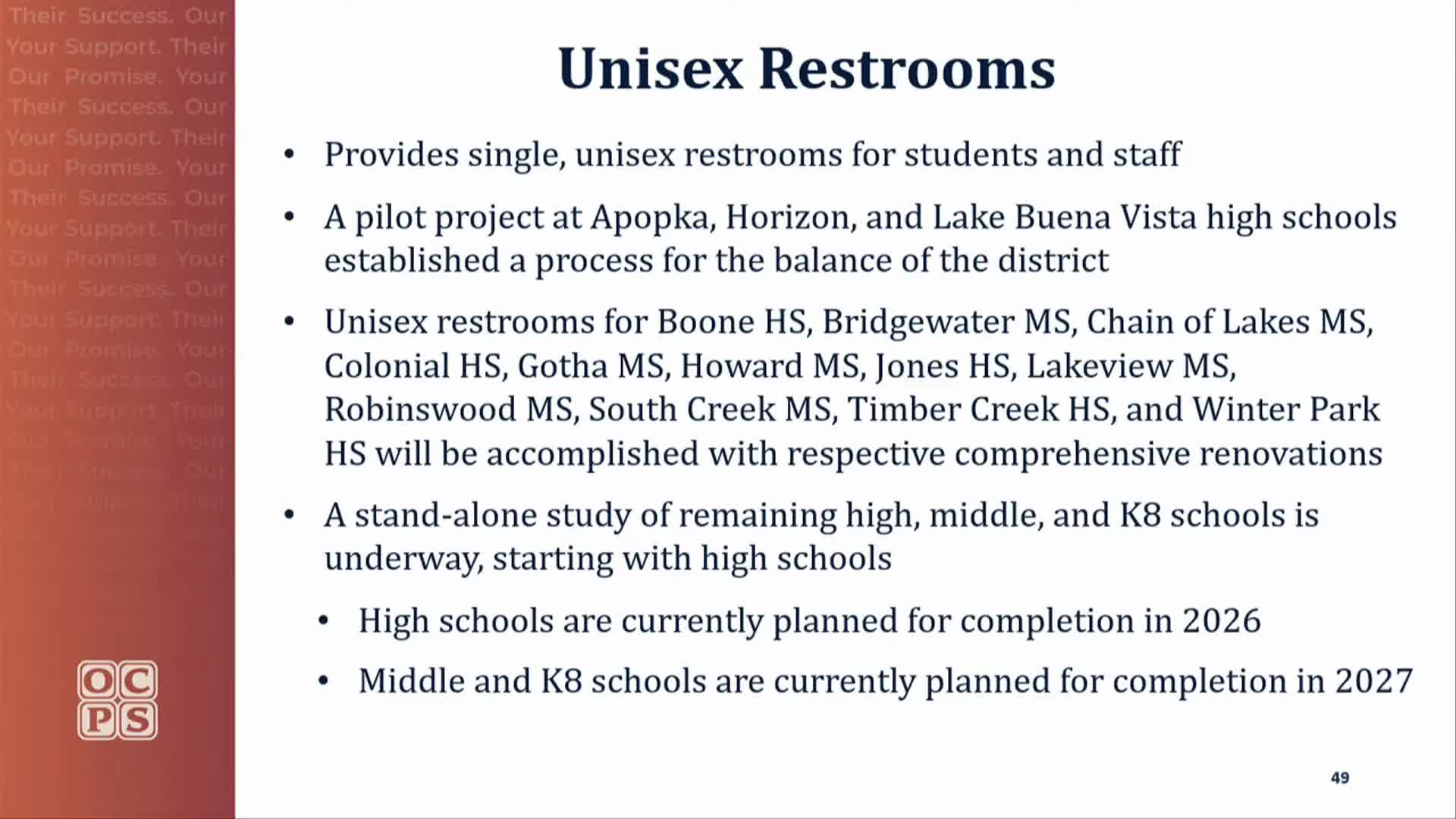
OCPS plans card readers, vape detectors and restroom changes under safety initiative
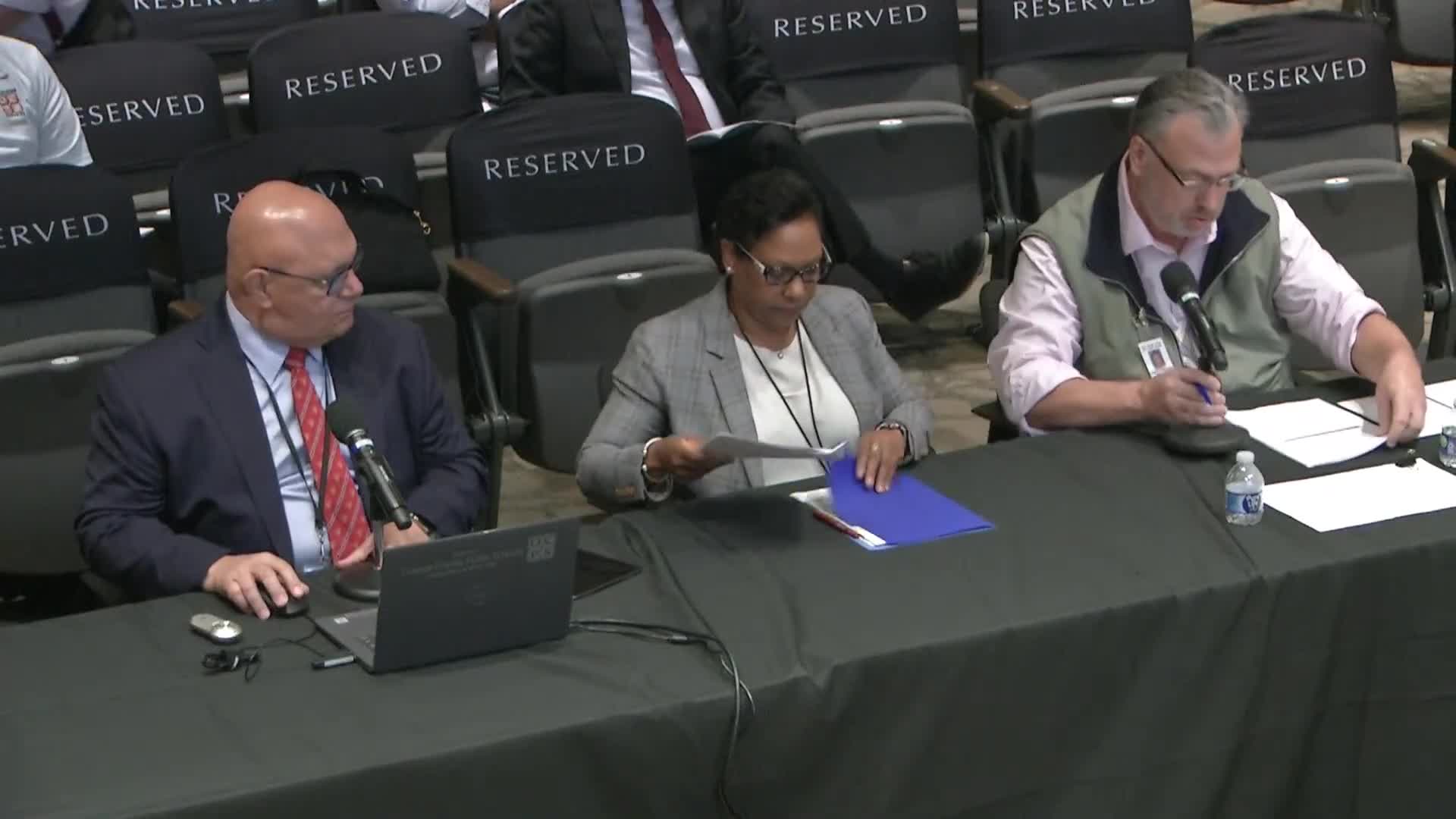
OCPS outlines next wave of comprehensive renovations, capital-renewal funding tied to sales surtax
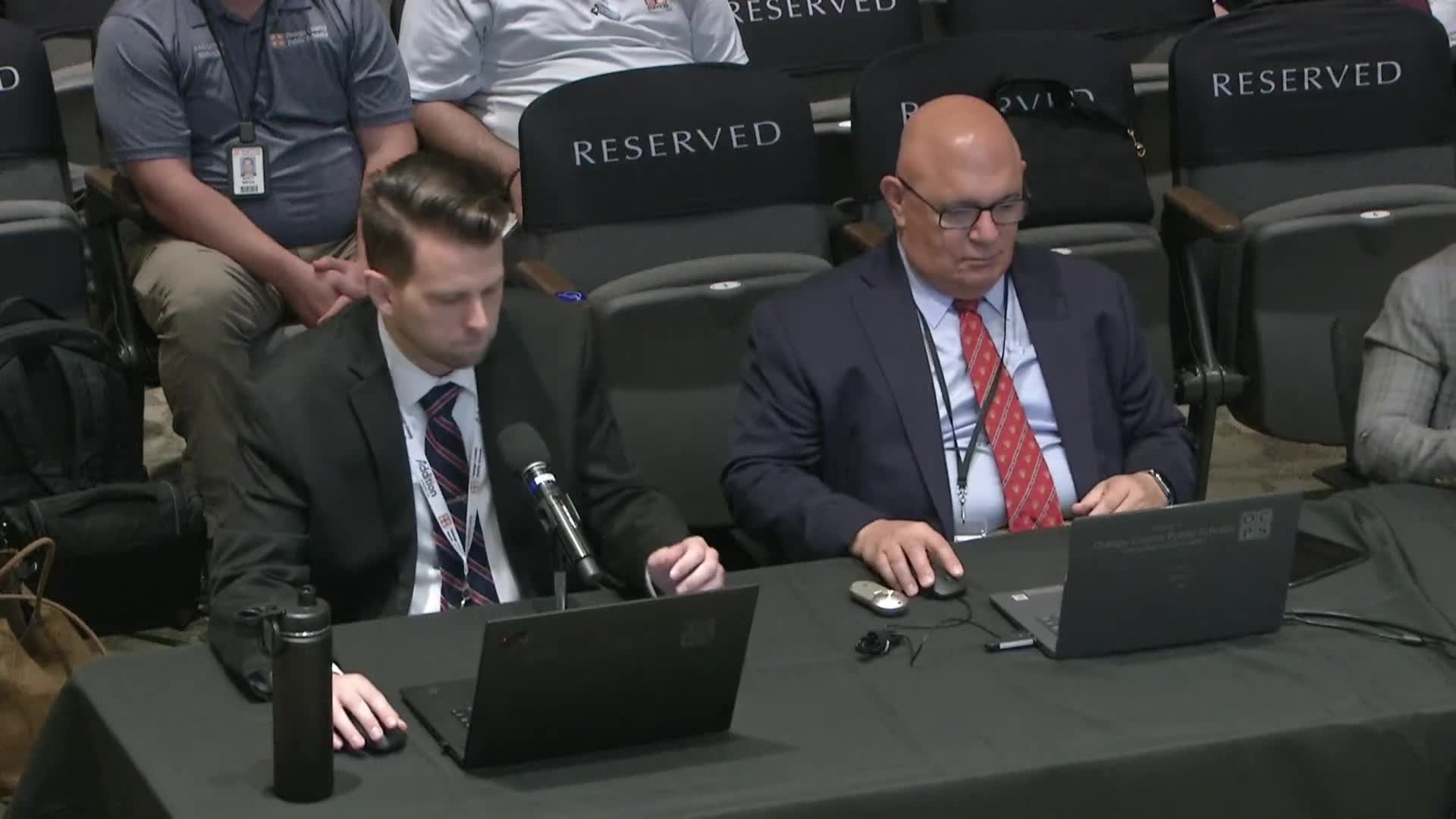
OCPS projects fewer new schools over next decade as enrollment declines in parts of county

